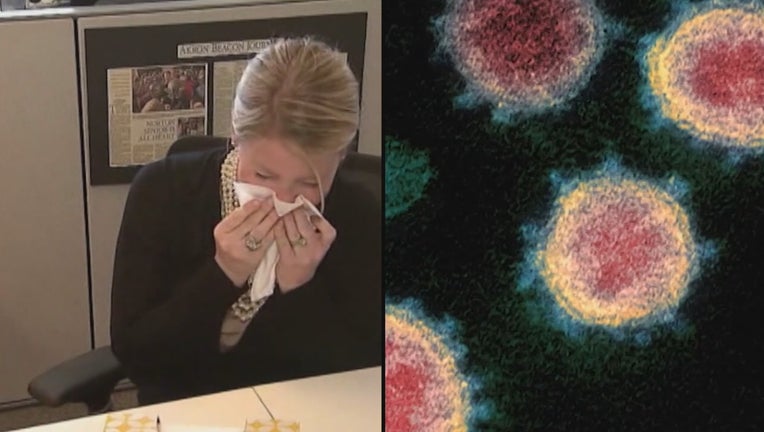How to distinguish between COVID-19 and allergy symptoms

Some allergy symptoms could get confused with COVID-19 symptoms. (FOX 9)
MINNEAPOLIS (FOX 9) - Ragweed pollen counts across the state are on the rise. This means for allergy sufferers the coming days could be brutal and confusing as the country remains in the midst of a pandemic.
“If people had allergies to a certain pollen in previous years, it tends to come back around the same time each year,” Dr. Susan Kline, a professor and infectious disease physician with M Health Fairview.

How to distinguish between COVID-19 and allergy symptoms
Ragweed pollen counts across the state are on the rise. This means for allergy sufferers the coming days could be brutal and confusing as the country remains in the midst of a pandemic.
The ongoing COVID-19 pandemic makes this upcoming fall allergy season different than most. From coughing to sneezing to fatigue, differentiating between allergy and coronavirus symptoms could be difficult for some.
“I think they’re fairly different actually,” said Kline. “Like with allergies people are more likely to have a runny nose and sneezing and itchy or maybe watery eyes, though with COVID-19 those symptoms are less likely.”
Kline says that a major marker of COVID-19 is fever.
“With allergies, fever is unusual and usually people with allergies don’t have fevers,” she said. “But with COVID-19, it’s more typical, although not everyone with COVID-19 can develop a fever.”
As more people return to work and with the start of a new school year around the corner, ragweed pollen is expected to reach peak levels in a few weeks.
“If you’re pretty sure that you’re having your typical allergy symptoms, I think that it would be ok to go to work,” said Kline. “However, if there’s something different about this year like you’re having fever or you’re short of breath or there’s a sore throat - those are the things that would be more worrisome. And then I would say you stay home and try to get tested.”
Kline says it's important for people to know the difference between allergies and COVID-19. She encourages anyone who is having a difficult time with their allergy symptoms to consult a doctor.

